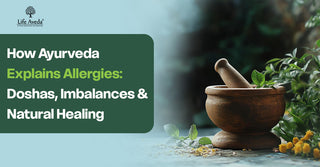Glutathione is a term that you might have come across when researching liver health or detoxification. But what exactly is it, and why is it so important? In simple terms, glutathione is a powerful antioxidant made up of three amino acids: cysteine, glycine, and glutamic acid. This tiny molecule is a big deal for your body, especially for your liver, which holds the highest concentration of glutathione compared to other organs.
Let’s dive into the role of glutathione, why you should consider taking glutathione for liver health, its benefits, and how you can boost your levels naturally or through supplementation.
Understanding Glutathione and Its Role in Liver Health
Glutathione is mainly a tripeptide (glycine, cysteine, and glutamic acid) produced by bodily tissues to regulate the immune system, reduce oxidative stress, and increase metabolic detoxification. Its deficiency causes various neurological and metabolic dysfunctions in the body, including cancer. The liver is your body’s detox centre, working tirelessly to filter out harmful substances and maintain overall health. It is crucial to have an adequate amount of glutathione for liver health.
Glutathione plays a vital role in maintaining liver health via various mechanisms.
1. Detoxification
The liver’s main job is to detoxify harmful substances that enter your body through food, drink, and the environment. Glutathione acts as a cofactor for important enzymes that help break down these toxins, including heavy metals, alcohol, and pollutants. Essentially, it binds to toxins and neutralizes them, making it easier for the body to eliminate them safely.
2. Reduction of Oxidative Stress
Oxidative stress occurs when there’s an imbalance between free radicals and antioxidants in your body. Left unchecked, it can damage liver cells and contribute to conditions like non-alcoholic fatty liver disease (NAFLD) and alcoholic liver disease. Glutathione is a natural protector that helps restore this balance by neutralizing free radicals. Free radicals are harmful molecules that can damage your cells. Glutathione steps in to neutralize them and reduces oxidative stress on liver cells. Overall, it actively shields the liver cells from damage and reduces the risk of liver diseases.
3. Inflammation Control
Chronic inflammation is another enemy of liver health. If not addressed in a timely manner, it can lead to scarring and long-term damage. By reducing oxidative stress, glutathione also helps lower inflammation levels in the liver. This anti-inflammatory effect contributes to better overall liver health and can prevent the progression of liver-related conditions.
Benefits of Glutathione Supplementation
As mentioned, glutathione is produced naturally by the body. For some people, the body’s natural production of glutathione might not be enough due to factors like poor diet, chronic stress, or exposure to toxins. This is where glutathione supplementation can come in handy. Natural supplements of glutathione are considered the safest and most highly effective for restoring liver health. You can choose a suitable Ayurvedic medicine for liver detoxification that helps boost glutathione levels.
Here are some potential benefits of taking glutathione supplements:
1. Improvement in Liver Function
Research suggests that glutathione supplementation can improve liver function by lowering some enzyme levels, such as alanine aminotransferase (ALT), which is a marker of liver health. These lower enzyme levels often indicate reduced liver inflammation and better function. Glutathione supplements can also help people with conditions like NAFLD (Nonalcoholic fatty liver disease).
2. Protection Against Liver Damage
Glutathione is associated with reducing cell damage in both alcoholic and non-alcoholic liver diseases. By protecting liver cells and promoting repair, it can improve outcomes for individuals struggling with these conditions. Glutathione acts as a cofactor for enzymes involved in detoxification, such as glutathione peroxidase. This enzyme is responsible for metabolizing hydrogen peroxidase, a harmful byproduct of drugs and alcohol metabolism. By supporting such liver enzymes, Glutathione supplements protect liver cells from damage.
3. Enhanced Detoxification
Boosting glutathione levels may enhance your body’s ability to detoxify harmful substances more effectively. This can be especially beneficial if you are frequently exposed to environmental toxins or lead a lifestyle that taxes your liver, such as consuming alcohol or processed foods regularly.
Supplementation Options and Considerations
If you are considering glutathione supplementation, it is essential to understand the different methods available and their effectiveness:
1. Oral Supplements
The body may not absorb traditional oral glutathione supplements well due to breakdown during digestion. However, newer formulations and research suggest that oral glutathione can still be beneficial, particularly for people with specific liver issues. Look for high-quality supplements for the best results. Standard forms of Glutathione supplements are available as tablets and capsules containing L-glutathione in powdered form. Liposomal capsules and sublingual tablets are designed to be absorbed into the bloodstream via mucous membranes, allowing more effective delivery of glutathione.
2. Intravenous (IV) Therapy
IV glutathione is delivered directly into your bloodstream, bypassing the digestive system. This method provides faster and more effective results, especially for individuals with severe deficiencies or chronic liver conditions. However, it’s more invasive and should be done under medical supervision.
Natural Ways To Boost Glutathione Levels
If you are still in the process of making up your mind about taking supplementation, don’t worry. There are plenty of natural ways to support your body’s glutathione production:
1. Eat Sulfur-Rich Foods
Sulfur is a key component in glutathione synthesis. Foods like garlic, onions, and cruciferous vegetables (e.g., broccoli, cauliflower, and Brussels sprouts) are excellent sources. Adding these to your diet can naturally boost your glutathione levels.
2. Include Protein-Rich Foods
Since glutathione is made up of amino acids, consuming enough protein can support its production. Eggs, lean meats, fish, and legumes are great options.
3. Herbs
Several herbs are known to be rich in glutathione or promote its synthesis in the body. Herbs like turmeric and milk thistle are well known for promoting anti-inflammatory, antioxidant, and glutathione-related enzyme activity in the body.
4. Regular Exercise
Physical activity has been shown to increase antioxidant levels in the body, including glutathione. To support overall health and glutathione production, aim for moderate-intensity exercise, such as brisk walking, cycling, or yoga.
5. Avoid Toxins
Reducing your exposure to environmental toxins like pesticides, heavy metals, and cigarette smoke can help preserve your glutathione levels. Using natural cleaning products and eating organic foods when possible can also make a difference.
Conclusion
Glutathione is a powerhouse antioxidant that plays a critical role in liver health and overall detoxification. It helps keep your liver functioning at its best by supporting the breakdown of harmful substances, reducing oxidative stress, and controlling inflammation. While supplementation can provide significant benefits for some individuals, consulting a healthcare professional before starting any new regimen is essential. Connect with experts at Life Aveda today for online ayurvedic doctor consultation.
Incorporating healthy lifestyle habits such as eating a balanced diet, exercising regularly, and avoiding toxins can naturally boost your glutathione levels. By taking these steps, you can support your liver and promote better health for years to come.
Remember, your liver works hard for you, it’s time to give it the care it deserves!



